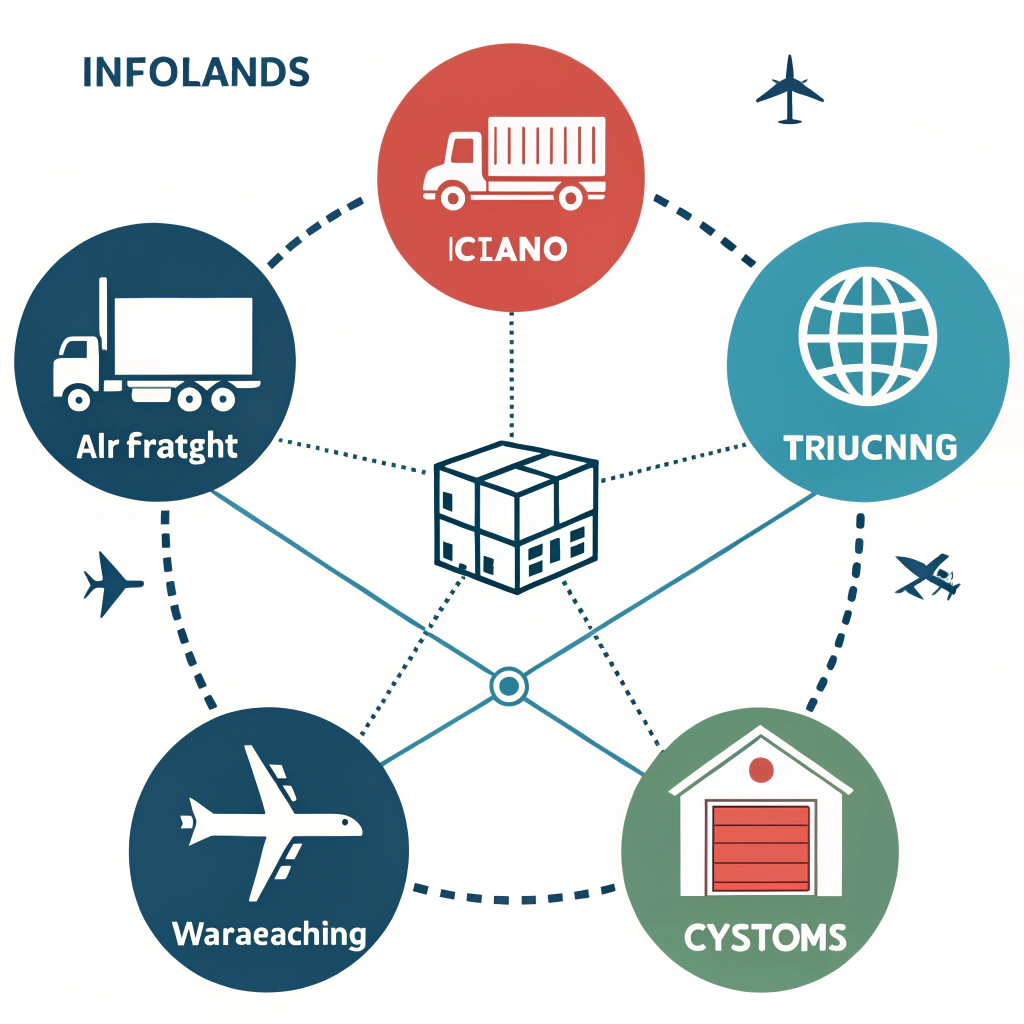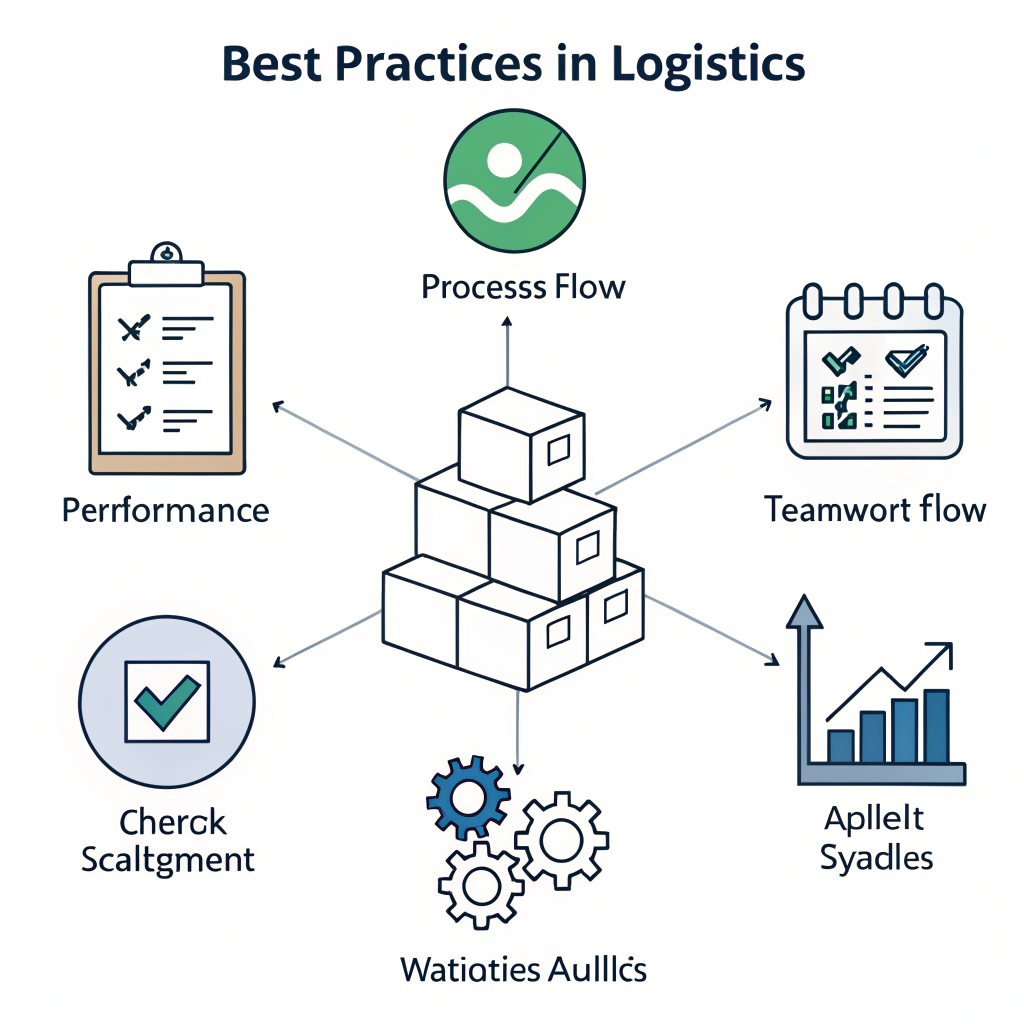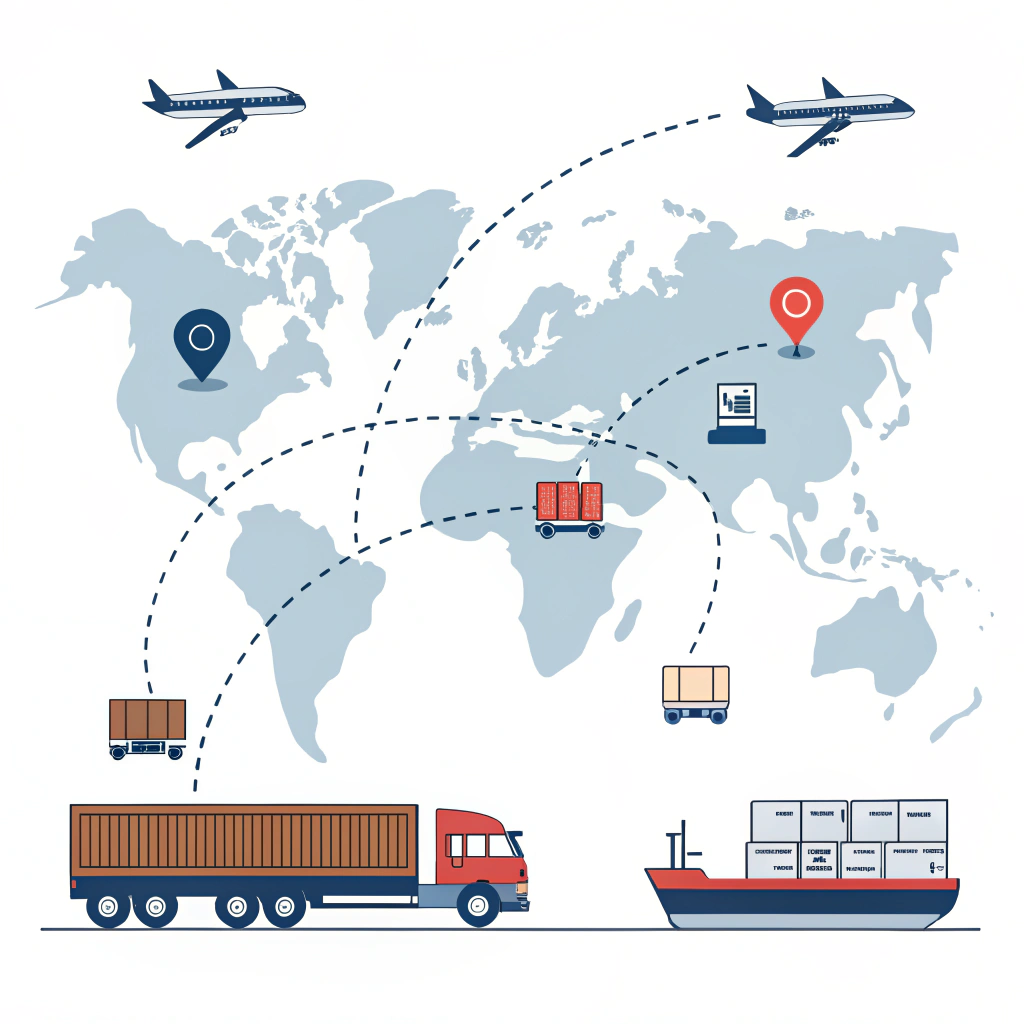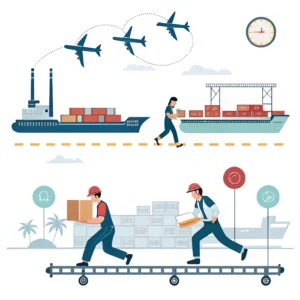Reliable logistics support is the engine that powers business growth by streamlining supply chain operations, reducing delays, and enabling scalability through flexible, integrated solutions. In this article, we explore practical ways to scale your business by leveraging robust logistics support, covering everything from transportation modes to technology integration and strategic partnerships.
Scaling a business is not only about increasing production or entering new markets—it is also about evolving your logistics and supply chain operations. Supply chain management1 is at the core of every growing business because inefficiencies in logistics can lead to costly delays and missed opportunities. Common challenges include:
- Capacity limitations: Inadequate handling of increased volumes during peak demand.
- Inefficient processes: Manual processes and outdated systems leading to delays.
- Poor integration: Lack of coordination among transportation, warehousing, and customs which increases order fulfillment2 times.
- Unpredictable service quality: Variability in service quality from different logistics providers can lead to inconsistent delivery performance.
- Cost control: Scaling rapidly often brings unexpected costs that can disrupt profit margins.
Recognizing these challenges early is crucial for tailoring a logistics support system that not only meets current needs but is also scalable for future growth.
Understanding issues in your current logistics processes is the first step:
- Fragmented Operations: Disparate systems for air freight, ocean shipping, and inland trucking often lack coordination.
- Inadequate Technology: Legacy systems that do not offer real-time tracking and data analytics can hinder responsive decision-making.
- Operational Bottlenecks: Issues such as delays in customs brokerage3 or inefficient warehousing and distribution strategies slowdown overall throughput.
- Capacity Constraints: Small-volume consolidations or underutilized shipping containers can drive up costs while limiting scale.
- Vendor Variability: Inconsistent performance among logistics carriers and partners may lead to unpredictable service levels.
By mapping out these root causes, businesses can pinpoint areas that need transformation to support their scaling ambitions.
Scaling your business with reliable logistics support involves a multi-pronged approach. Below are several actionable strategies to consider:
Implementing robust technology platforms such as Transportation Management Systems (TMS)4 and Warehouse Management Systems (WMS)5 can greatly enhance visibility and control. Key benefits include:
- Real-time tracking and reporting: Monitor shipments and inventory at every stage.
- Enhanced data analytics: Use data to forecast demand and optimize routes.
- Automation: Reduce errors by automating documentation, reporting, and compliance.
Efficient coordination between air freight, ocean shipping, and inland trucking is essential. Consider:
- Multi-modal integration: Establish partnerships that offer seamless handoffs between different transportation modes.
- Consolidation shipping: Reduce costs and improve reliability by consolidating loads, particularly for less-than-container-load (LCL) scenarios.
- Flexible scheduling: Adapt transportation plans based on fluctuating demand.
Strong warehousing and distribution support is necessary to handle increased volumes and deliver faster service:
- Strategic location of warehouses: Position warehouses closer to key markets to reduce transit times.
- Inventory management: Adopt lean principles and just-in-time inventory practices to balance costs with service levels.
- Cross-docking: Implement strategies to speed up transfer from inbound to outbound shipments.
Navigating international shipping regulations can be complex. A trusted customs brokerage service can reduce delays:
- Expertise in regulations: Ensure shipments comply with all legal requirements.
- Documentation management: Use digital platforms to manage and expedite customs paperwork.
- Risk reduction: Minimize the risk of non-compliance through proactive strategies.
Collaboration with reliable logistics partners is key:
- Freight forwarders: Work with experts who can offer door-to-door services and consolidation shipping options.
- Local logistics providers: Leverage local knowledge to optimize inland trucking and warehousing.
- Consultants & technology integrators: Engage professionals who can help map out and execute a scalable logistics strategy.
Below is a table summarizing the key components for scaling logistics operations:
| Key Component | Action Item | Benefit |
|---|---|---|
| Advanced Technology | Implement TMS and WMS systems | Improved visibility and data-driven decisions |
| Multi-Modal Transport | Integrate air, ocean, and inland trucking | Seamless scheduling and cost efficiency |
| Warehousing & Distribution | Establish strategically located warehouses and cross-docking | Faster delivery and optimized inventory management |
| Customs Brokerage | Engage experienced customs agents and digital documentation tools | Reduced delays and regulatory compliance risk |
| Strategic Partnerships | Build collaborative relationships with key industry players | Consistent service quality and scalability |
A key strategy to scale logistics is to standardize processes and continually refine them:
- Develop standard operating procedures (SOPs): Document processes from procurement to final delivery.
- Continuous improvement initiatives: Use Lean and Six Sigma methodologies to reduce waste and improve efficiency.
- Performance metrics: Regularly track key performance indicators (KPIs) such as on-time delivery rate, cost per shipment, and order accuracy.
Consolidation shipping is an intelligent approach for businesses experiencing fluctuations in demand:
- Flexible container usage: Customize shipments based on volume to ensure cost-effectiveness.
- Merge-in-transit services: Combine multiple shipments into one delivery, reducing transit time and shipping costs.
- Decreased carbon footprint: Consolidation not only reduces expenses but also contributes to sustainability targets.
When scaling up your logistics operations, several best practices ensure smooth implementation:
- Invest in employee training: Educate your team on new systems and processes to ensure smooth transitions.
- Conduct regular audits: Evaluate your supply chain periodically to identify bottlenecks and inefficiencies.
- Foster flexibility: Build systems that can quickly adapt to changing market conditions or unexpected disruptions.
- Use key performance indicators (KPIs): Regular monitoring of KPIs helps in making data-driven improvements.
- Plan for scalability from the start: Choose logistics partners and technologies that support growth and can scale with your business.
Real-world data supports the emphasis on these practices. For instance, companies that integrated advanced TMS solutions observed a 20% improvement in delivery performance and a 15% reduction in logistics costs, thereby gaining a competitive edge in rapidly evolving markets.
Consider a mid-sized manufacturer looking to expand its global reach. Initially, the company faced delays due to inefficient ocean shipping and fragmented inventory management. By engaging a full-service freight forwarder and integrating end-to-end logistics solutions, they achieved:
- 30% reduction in lead time: Through better scheduling and consolidated shipments.
- 10% cost savings: By choosing the optimal mix of transportation modes.
- Improved customer satisfaction: Faster, more reliable deliveries bolstered the company’s reputation in new overseas markets.
This example underscores the transformative impact of reliable logistics support and provides actionable insights that other companies can adapt to scale their operations effectively.
To conclude, reliable logistics support is essential for scaling your business. Here are some final recommendations to put scaling into action:
- Evaluate your current processes: Conduct a holistic review of your supply chain from procurement to delivery.
- Adopt technology solutions: Invest in platforms that provide real-time insights and streamline operations.
- Form strategic partnerships: Align with trusted logistics professionals who understand your scaling goals.
- Focus on continuous improvement: Regularly benchmark performance and refine your processes to advance efficiency.
- Prepare for uncertainty: Implement flexible and scalable solutions that can adapt quickly to market shifts or disruptions.
By applying these strategies, you set up your business for success in an increasingly competitive global marketplace. Scaling your operations through reliable logistics support not only enhances efficiency but also unlocks new markets and revenue streams. With the right mix of technology, process improvement, and strategic partnerships, your supply chain can be your strongest asset in a scalable growth strategy.
-
How to scale a logistics business?
To scale a logistics business, start by assessing your current processes comprehensively. Identify bottlenecks in areas like procurement, inventory management, order fulfillment, and transportation. Enhancing technology, standardizing procedures, and building strategic partnerships are essential to efficiently manage growth. -
What are the 7 R's for better logistics management?
The 7 R’s for better logistics management refer to ensuring that you get the Right product, in the Right quantity, in the Right condition, at the Right place, at the Right time, to the Right customer, and at the Right price. This framework helps maintain efficiency and reliability across the entire supply chain. -
What is scaling in logistics?
Scaling in logistics means designing supply chain and distribution systems that can adapt efficiently to changes in demand. This includes the ability to increase or decrease operations without compromising on performance, cost-effectiveness, or service quality.
-
Supply chain management: Click to read an in-depth guide on integrating suppliers, manufacturers, and distributors for enhanced operational efficiency and minimized risks. ↩ ↩
-
order fulfillment: Click to discover strategies for optimizing the process of completing customer orders efficiently and accurately. ↩ ↩
-
customs brokerage: Click to learn about the role of customs brokerage in ensuring regulatory compliance and timely clearance of international shipments. ↩ ↩
-
Transportation Management Systems (TMS): Click to explore the benefits of TMS in streamlining shipment tracking, route optimization, and overall supply chain visibility. ↩ ↩
-
Warehouse Management Systems (WMS): Click to understand how WMS solutions improve inventory accuracy, enhance warehouse operations, and boost efficiency. ↩ ↩












